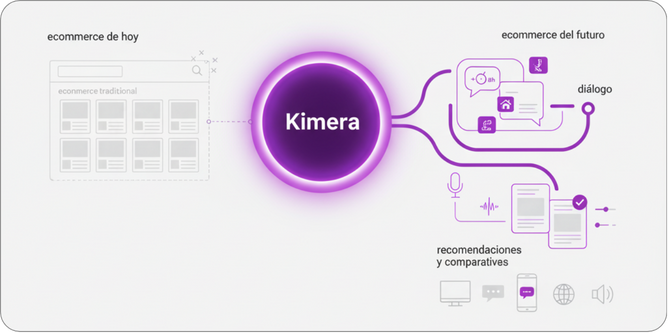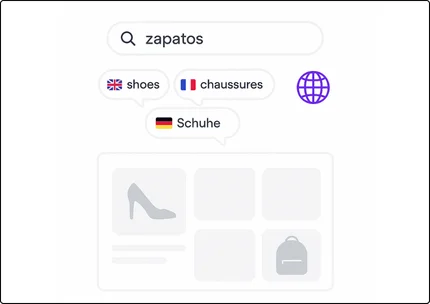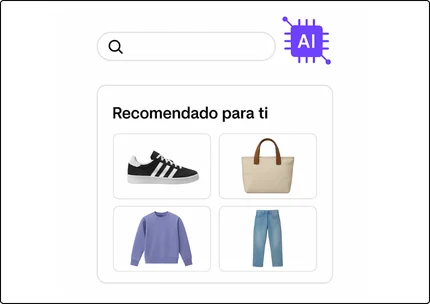Conversational Ecommerce, The Revolution in Customer Experience
Conversational ecommerce is no longer a futuristic promise, but a reality that is changing the way we shop online. Imagine entering a digital store and, instead of navigating through endless menus, simply talking to an intelligent assistant who understands what you want, recommends products, and answers your questions instantly. That is exactly what is happening today thanks to conversational artificial intelligence.
Whereas ecommerce used to be transactional, it is now conversational: approachable, agile, and focused on creating personalized experiences that make customers feel heard and understood. And when someone feels heard... they come back.
What is conversational ecommerce (and why is everyone talking about it)?
Conversational e-commerce is the integration of conversational AI tools —such as advanced chatbots, voice assistants, and intelligent search engines—into online stores.
It's not just about answering FAQs. It's about maintaining natural, contextual dialogues where customers can ask questions, compare options, clarify details, and even “negotiate” as if they were talking to a real person.
From traditional ecommerce to a conversational one
The traditional or older model forced you to “adapt” to the interface: menus, filters, rigid searches.
Conversational, on the other hand, adapts to the customer.

The AI behind the change (what makes it possible)
Tools such as OpenAI have shown that it is possible to have natural conversations with machines. Applying this logic to e-commerce means that customers can ask:
- “I want comfortable running shoes for running on asphalt.”
“What do you recommend for an anniversary gift?”
And you receive accurate, personalized answers with clear comparisons and recommendations that make sense, not just a random list.
How conversational ecommerce works in practice
Imagine that your e-commerce site has an AI-powered assistant. The customer writes:
👉 “I'm looking for a lightweight laptop for working while traveling, with good battery life and costing less than €1,000.”
The assistant understands your intention, filters the catalog, suggests 2–3 top options, explains the pros and cons, and, if necessary, proposes alternatives. It's like having a digital personal shopper who accompanies you all the way to checkout.
Translation: an “OpenAI for your e-commerce” that not only responds... it sells.

Where to activate these conversations
Website and mobile apps
Social media (WhatsApp, Messenger, Instagram DM)
Voice assistants such as Alexa or Google Assistant
Wherever there are customers, there can and should be conversation and conversion.
Advantages of conversational e-commerce for brands and customers
The customer feels listened to at all times. It's not about filling out a form, but having a fluid dialogue.
Conversations that generate valuable data
Each interaction reveals preferences, needs, and objections that help the brand improve its offering.
Reduced friction and increased sales
By eliminating unnecessary steps, conversions increase and abandoned carts decrease.
Conversational search engines are the new gateway to ecommerce.
The search engine of an e-commerce site has always been key, but now it is evolving from a text box to a real-time conversation.
Differences from traditional search engines
Each interaction reveals preferences, needs, and objections that help the brand improve its offering.
Before: The customer searched for “cheap black ergonomic office chair.” If one word was missing, RIP results.
Now: “I work from home for more than 8 hours a day. What comfortable chair would you recommend?” It understands context, usage, and preferences.
Real-life examples of conversational search engines in action
Retailers that already integrate voice assistants for product searches.
Ecommerce platforms that allow users to compare products in real time within the chat.
Kimera: innovation in conversational search engines for ecommerce
This is where Kimera comes in. It's not “just another chatbot.” It's an intelligent conversational search engine that understands context, intent, and nuances.
What makes Kimera different?
Kimera is not just a chatbot. It is an intelligent conversational search engine that understands real natural language, even if you write strangely, with mistakes or without technical terms, and recommends and compares in seconds, even putting together a look or a pack for you.
Ecommerce use cases and benefits
Personalized recommendations that really make sense.
Immediate responses that reduce customer frustration.
Greater engagement and loyalty, because users enjoy interacting with the brand.
The future of conversational ecommerce beyond chatbots
Conversational ecommerce is not limited to answering questions. In the future, we will see:
They are and will continue to be intelligent assistants that anticipate needs
Systems that, based on your previous purchases, suggest what you need before you ask for it.
Seamlessly integrates with the generative AI ecosystem
An ecommerce platform where AI not only understands but also creates content, generates comparisons, prepares personalized reviews, and even tailors offers.
Questions about conversational eCommerce
The chatbot answers simple questions. Conversational ecommerce maintains a real dialogue, understands context, and guides the customer through their purchase.
It depends on the solution. Tools such as Kimera facilitate integration with the existing catalog without the need for major developments.
No, SMEs can also implement it and stand out from the competition.
Yes, provided that the solution complies with data protection regulations such as the GDPR.
Not necessarily; it complements it and, in many cases, improves it.
Through metrics such as time on site, customer satisfaction, reduction in abandoned carts, and increased conversions.
Often, conversation is the best way to sell
Conversational ecommerce is not a passing fad: it is the natural evolution of how we shop online. Customers no longer want to browse in silence; they want to talk, ask questions, be heard, and get immediate answers.
With tools such as Kimera, ecommerce businesses can offer memorable experiences, increase sales, and improve customer loyalty. Because, ultimately, the key is not to sell more, but to sell by communicating better. 💬






















